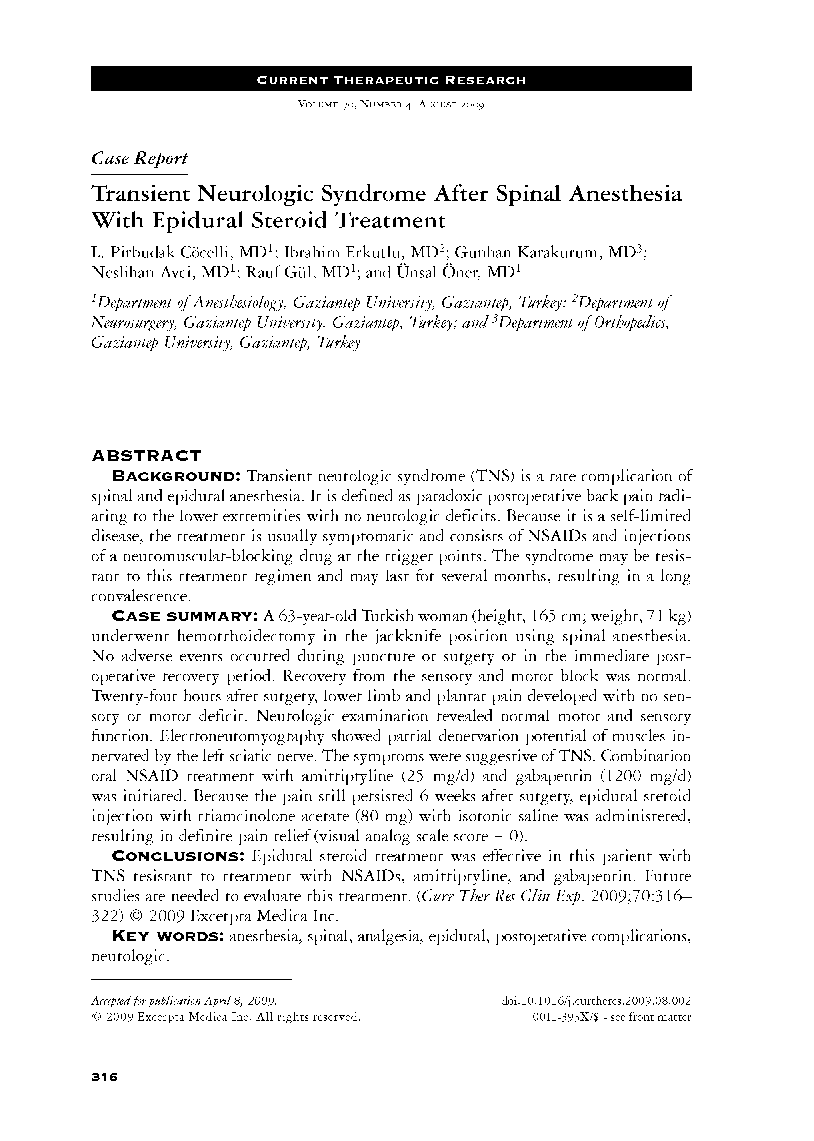| کد مقاله | کد نشریه | سال انتشار | مقاله انگلیسی | نسخه تمام متن |
|---|---|---|---|---|
| 4196931 | 1278726 | 2009 | 7 صفحه PDF | دانلود رایگان |

Background: Transient neurologic syndrome (TNS) is a rare complication of spinal and epidural anesthesia. It is defined as paradoxic postoperative back pain radiating to the lower extremities with no neurologic deficits. Because it is a self-limited disease, the treatment is usually symptomatic and consists of NSAIDs and injections of a neuromuscular-blocking drug at the trigger points. The syndrome may be resistant to this treatment regimen and may last for several months, resulting in a long convalescence.Case summary: A 63-year-old Turkish woman (height, 165 cm; weight, 71 kg) underwent hemorrhoidectomy in the jackknife position using spinal anesthesia. No adverse events occurred during puncture or surgery or in the immediate postoperative recovery period. Recovery from the sensory and motor block was normal. Twenty-four hours after surgery, lower limb and plantar pain developed with no sensory or motor deficit. Neurologic examination revealed normal motor and sensory function. Electroneuromyography showed partial denervation potential of muscles innervated by the left sciatic nerve. The symptoms were suggestive of TNS. Combination oral NSAID treatment with amitriptyline (25 mg/d) and gabapentin (1200 mg/d) was initiated. Because the pain still persisted 6 weeks after surgery, epidural steroid injection with triamcinolone acetate (80 mg) with isotonic saline was administered, resulting in definite pain relief (visual analog scale score = 0).Conclusions: Epidural steroid treatment was effective in this patient with TNS resistant to treatment with NSAIDs, amitriptyline, and gabapentin. Future studies are needed to evaluate this treatment.
Journal: Current Therapeutic Research - Volume 70, Issue 4, August 2009, Pages 316-322